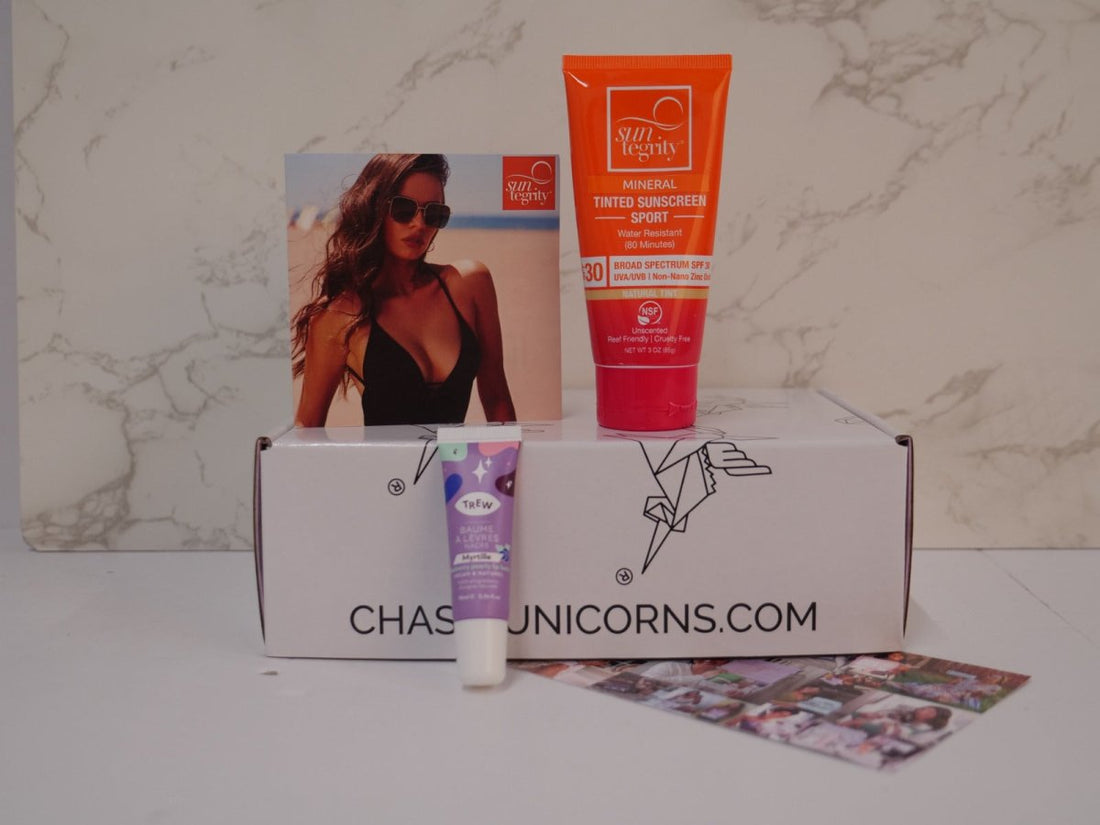When it comes to sun protection, we often find ourselves confronted with a myriad of options. However, in recent years, there has been a growing awareness of the importance of using organic and reef-safe sunscreens. These conscientious alternatives not only shield our skin from harmful UV rays but also safeguard fragile marine ecosystems. In this blog post, we delve into the remarkable potency of the active and inactive ingredients found in organic and reef-safe sunscreens. Let's explore how nature's finest ingredients can keep us protected while preserving our environment.
The Powerhouse: 20% Non-Nano Zinc Oxide: At the heart of organic and reef-safe sunscreens lies a true superhero: 20% non-nano Zinc Oxide. Unlike its nano-sized counterparts, non-nano Zinc Oxide provides effective broad-spectrum protection without penetrating the skin barrier. This mineral acts as a physical barrier, reflecting and scattering UV rays away from the skin's surface. Its non-irritating nature makes it suitable for even the most sensitive skin types, ensuring a gentle and safe sun protection experience.
Harnessing Nature's Bounty: Supporting Ingredients: Organic and reef-safe sunscreens go beyond Zinc Oxide, embracing a range of natural and nourishing ingredients. Let's take a closer look at some of these:
-
Sunflower Seed Oil: Known for its antioxidant properties, Sunflower Seed Oil provides moisture and helps to retain the skin's natural hydration. Its lightweight texture makes it easily absorbed, leaving the skin feeling nourished and replenished.
-
Beeswax: Acting as a natural emollient, Beeswax forms a protective barrier on the skin, sealing in moisture and preventing dryness. It enhances the sunscreen's water-resistance properties without harming marine life or damaging coral reefs.
-
Olive Fruit Oil: Rich in antioxidants, Olive Fruit Oil helps to combat free radicals and soothe the skin. Its moisturizing properties contribute to a smoother and more supple complexion.
-
Castor Seed Oil: Castor Seed Oil offers excellent lubrication, aiding in the application and spreadability of the sunscreen. It also helps to moisturize and condition the skin, leaving it soft and hydrated.
-
Jojoba Oil: Renowned for its similarity to the skin's natural oils, Jojoba Oil helps to balance oil production, making it suitable for various skin types. It assists in keeping the skin hydrated without clogging pores.
-
Shea Butter: Packed with vitamins and fatty acids, Shea Butter deeply nourishes and protects the skin. It aids in preventing moisture loss, promoting a smoother and healthier complexion.
-
Vitamin E: With its potent antioxidant properties, Vitamin E shields the skin against environmental stressors and helps to maintain skin health. It also enhances the stability and shelf life of the sunscreen.

An Ethical Commitment: Certified Organic Ingredient(s): Certified Organic Ingredient(s) signify a dedication to sustainable and responsible manufacturing practices. They ensure that the ingredients are derived from organic sources, grown without the use of harmful pesticides or chemicals. Choosing sunscreens with these certifications not only benefits your skin but also supports eco-friendly and ethical practices.
The Beauty of Nature: Mica and Iron Oxides: Some organic and reef-safe sunscreens incorporate Mica and Iron Oxides to provide a subtle tint and improve the appearance of the skin. These mineral-based pigments help to even out skin tone, offering a natural and healthy-looking glow. Rest assured, their presence doesn't compromise the organic and reef-safe nature of the sunscreen.
Conclusion: As we strive to protect our skin and preserve the beauty of our oceans, the importance of using organic and reef-safe sunscreens cannot be overstated. By embracing these sunscreens, we not only shield ourselves from harmful UV rays but also contribute to the well-being of marine ecosystems and coral reefs.
Scientific research and expert opinions consistently highlight the efficacy of organic and reef-safe sunscreen ingredients. The powerful combination of non-nano Zinc Oxide, along with nourishing ingredients like Sunflower Seed Oil, Beeswax, Olive Fruit Oil, Castor Seed Oil, Jojoba Oil, Shea Butter, and Vitamin E, work together to provide optimal sun protection while keeping the skin healthy and hydrated.
Furthermore, these ingredients offer a host of additional benefits. They are often gentle on the skin, reducing the risk of irritation or allergic reactions, making them suitable for individuals with sensitive skin. Their natural origins also minimize the environmental impact associated with the production and use of conventional sunscreens, helping to protect delicate marine ecosystems and coral reefs from the harmful effects of certain chemical ingredients.
When selecting organic and reef-safe sunscreens, look for products that bear the "Certified Organic Ingredient(s)" label. This certification ensures that the ingredients used are derived from organic sources, produced without the use of synthetic chemicals, and cultivated sustainably. By supporting brands that prioritize these ethical and eco-friendly practices, we can make a positive impact on the planet while caring for our skin.
In conclusion, choosing organic and reef-safe sunscreens with active ingredients like non-nano Zinc Oxide, combined with nourishing and natural elements, is a powerful way to protect ourselves and the environment. By making conscious sunscreen choices, we can embrace the power of nature and contribute to a healthier, more sustainable future. Let's shield our skin and preserve the beauty of our oceans, one sunscreen application at a time.
